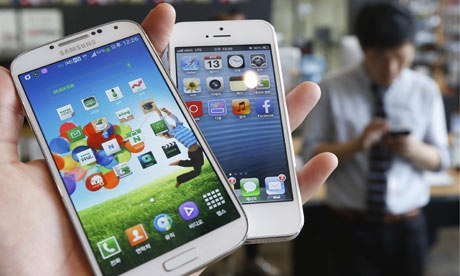Mail Online grew revenues by more than 40% to £62m in 2014, almost completely offsetting the advertising and sales decline at the Daily Mail and Mail on Sunday.
Parent Daily Mail & General Trust, reporting annual results for the year to the end of September, said the growth in digital advertising revenues is expected to continue to offset the decline in print ad revenues at its newspaper titles.
The Daily Mail and Mail on Sunday reported a 5% decline in total revenue to £536m. Print advertising revenues fell 5% while circulation revenues dropped 4%.
Total ad revenues across the Mail businesses hit £252m, a 4% year-on-year increase (£9m). Within this, Mail Online grew ad revenues by 46%.
The company said the Mail Online’s revenue growth of £19m year-on-year outstripped the £10m decline in print advertising revenues.
The growth in Mail Online, which just exceeded a management target of £60m in revenues for the financial year, stabilised total revenues across the Mail businesses to just a 1% fall at £598m. Overall operating profit at the Mail businesses grew 13% to £71m. Daily commuter freesheet Metro saw revenues fall 3% to £75m.
Profits for Metro are combined with daily deals business Wowcher, which saw revenues grow 73% to £24m, which fuelled a 92% surge to £14m.
The newspaper operations are part of DMG Media, which also includes operations and income such as DMGT’s stake in regional newspaper business Local World.
Overall profits for the division rose 19% to £95m year-on-year.
Mail Online has become a huge business in its own right, in the past year it has expanded into the US and Australia, employing over 600 staff.
Parent Daily Mail & General Trust, reporting annual results for the year to the end of September, said the growth in digital advertising revenues is expected to continue to offset the decline in print ad revenues at its newspaper titles.
The Daily Mail and Mail on Sunday reported a 5% decline in total revenue to £536m. Print advertising revenues fell 5% while circulation revenues dropped 4%.
Total ad revenues across the Mail businesses hit £252m, a 4% year-on-year increase (£9m). Within this, Mail Online grew ad revenues by 46%.
The company said the Mail Online’s revenue growth of £19m year-on-year outstripped the £10m decline in print advertising revenues.
The growth in Mail Online, which just exceeded a management target of £60m in revenues for the financial year, stabilised total revenues across the Mail businesses to just a 1% fall at £598m. Overall operating profit at the Mail businesses grew 13% to £71m. Daily commuter freesheet Metro saw revenues fall 3% to £75m.
Profits for Metro are combined with daily deals business Wowcher, which saw revenues grow 73% to £24m, which fuelled a 92% surge to £14m.
The newspaper operations are part of DMG Media, which also includes operations and income such as DMGT’s stake in regional newspaper business Local World.
Overall profits for the division rose 19% to £95m year-on-year.
Mail Online has become a huge business in its own right, in the past year it has expanded into the US and Australia, employing over 600 staff.
DMGT received £15m from its 39% stake in David Montgomery’s Local World.“The increased digital investment in Mail Online was more than offset by lower costs, notably production, distribution, marketing and central support services at the Daily Mail and the Mail on Sunday, and reduced losses at Wowcher,” the company said.
The Mail online has increased revenues due its online platform, whereas print newspapers have seen a decline in their Ads, this shows that print media is slowly begging to fall and perhaps it will only attract a niche market in the future whereas digital media will prevail.






